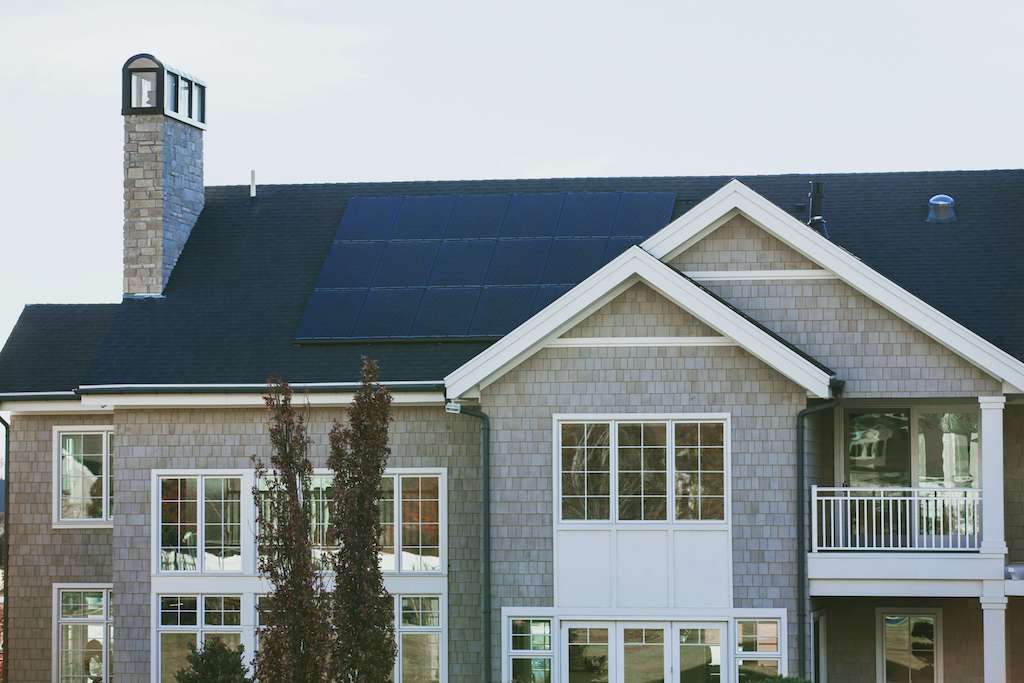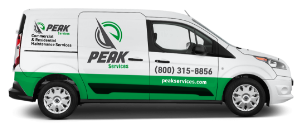
Since solar panels are a big investment, it only makes sense to ensure you keep them in top condition.
The great thing about solar panels is that once they’re attached to your home, they require almost no maintenance.
Nonetheless, as they’re exposed to the elements, they do gather some dirt and grime. But do solar panels need to be cleaned?
Does Cleaning Solar Panels Make a Difference?
There are actually several reasons why solar panels should be cleaned:
- Dirt lowers their efficiency. A small amount of grime on your solar panels has a minimal impact, as sunlight is able to pass through the dust. However, as dirt builds up over time, it starts to reduce the amount of light that can reach the solar panels. Various studies have looked at how much this reduces efficiency — they put the number anywhere from less than 5 percent to as much as 30 percent. Tests to increase the efficiency of solar panels have been unable to find anything better than cleaning.
- Leaves block light completely. Some types of debris block light from reaching your solar panels entirely. For instance, a wet leaf could fall on your solar panel and stick there until you remove it.
- They look ugly when dirty. Aesthetics are important. Whereas you obviously didn’t decide to install solar panels for their appearance, most people do agree that they add to the aesthetic appeal of a home. However, this is only the case when they’re clean. Dirty solar panels look unkempt, which reflects poorly on you. Keeping solar panels clean, in contrast, improves curb appeal.
Why Rain Won’t Clean Your Solar Panels
Rain can help clean your solar panels to some extent, but it’s often insufficient, particularly in certain situations.
For one thing, solar panels need to be pitched at a minimum of 5 degrees (although at least 10 degrees is better). Otherwise, rain does almost nothing. In fact, rain can make things worse on flat-lying solar panels.
This is because the water will evaporate, but sediment in the rainwater will not evaporate and instead remain on your solar panels as muddy residue.
Another factor is the type of debris on your solar panels. Rain can rinse your solar panels of dust and pollen, but it is unlikely to remove bird droppings and other dirt that requires proper scrubbing to remove.
For the rain to help at all, it needs to rain quite often. During dry periods of the year, dirt may start building up on your solar panels.
Finally, your location could mean that your solar panels are constantly receiving a dusting of debris. If you live near a highway, an airport, or agricultural land, your solar panels may receive a greater coating of dirt than average.
How Often Should You Clean Your Solar Panels?
By now, it should be clear that you need to clean your solar panels, but how often do you need to do it? This depends on what kind of cleaning you’re doing.
Weekly Check
Add a quick check of your solar panels to your weekly routine. This will let you know if anything requires your attention before it’s too late.
For instance, something could have fallen on your solar panels that could scratch the glass or grime could have built up to an extent that your solar panels are now much less efficient than they could be.
Regular Rinse
If you’re able, it’s a good idea to occasionally give your solar panels a quick rinse with a hose. This may be necessary every month or just quarterly — it depends on factors like rainfall and how much debris falls on your solar panels.
All you need to do is gently spray your solar panels with water. You can do this from ground level.
Extensive Cleaning
Solar panels also require a thorough cleaning once or twice a year. This involves wiping down the surface rather than just spraying the solar panels. You should still only clean the surface of your solar panels, though — you never need to clean the wiring under the panels.
If you opt for just an annual cleaning, spring is usually the best time of the year, as this will mean you remove all the dirt that has landed on your solar panels over the winter.
How to Clean Your Solar Panels: Step-by-Step Instructions
Next, let’s look at how to clean solar panels — DIY style. These are the steps you should take for the annual or biannual extensive clean.
Step 1: Check Manufacturer Recommendations
Read the documentation that came with your solar panels to find out if there’s anything specific you need to know about your particular solar panels. The manufacturer may have even included some cleaning recommendations.
Step 2: Prepare in Advance
Always check the weather for the upcoming days before you clean your solar panels. If it will rain in a couple of days anyway, it’s better to wait — the rain will wash away much of the dirt, leaving you with just the more stubborn grime to clean.
Plus, if a storm is coming, it may cover your solar panels in debris like leaves and twigs, meaning it will be a waste of time to clean beforehand.
In addition to checking the weather forecast, deciding at least a couple of days in advance gives you time to gather everything you need and prepare.
This is key because it’s necessary to clean your solar panels at the appropriate time of day.
Most importantly, you need to avoid cleaning your solar panels at the hottest time of the day. Under the hot sun, your solar panels heat up, reaching high temperatures. This both makes it more difficult to clean the solar panels and increases the risk the glass will crack when it comes into contact with the cold water from your hose.
You may not even see the crack at first. In fact, long before the crack becomes visible, you’ll likely notice that your solar panels are less efficient than they once were, even when they’re completely clean.
For this reason, you should only clean your solar panels in the early morning or late evening.
Step 3: Rinse the Solar Panels
The first part of the cleaning is just like the regular rinse you give your solar panels. Use a regular hose for this — never a pressure washer.
Step 4: Wipe Down the Solar Panels
To remove those tougher patches of grime, all you need is a bucket of warm water, perhaps with some mild detergent. (Some manufacturers recommend using just water.)
Whatever you do, avoid strong chemicals, as these can be corrosive and leave a permanent mark on your solar panels. Wipe your solar panels with a cloth or sponge — nothing abrasive.
For difficult-to-reach areas, attach your cloth or sponge to an extendable brush. Never lean over your solar panels when on a ladder, as this puts you at a much greater risk of falling.
Are Professional Solar Panel Cleaning Services Worth It?
Another option is to seek a professional solar panel cleaning service. There are several advantages to this:
- It’s dirty, tiring work. Rinsing your solar panels with a hose is simple, but a proper clean will take time — and you will get dirty.
- A professional service is safer. Unless you’re a trained professional and have all the gear you need (i.e. a harness and a hard hat), climbing on your roof is always going to be dangerous. Every year, almost 170,000 people are injured and 300 people die from falling off ladders in the U.S. alone. You may think that this could never happen to you, but the fact is that ladders are far more dangerous than they appear.
- Cleaning solar panels yourself may void your warranty. If you fail to take into account any manufacturer requirements when cleaning your solar panels, you may void the warranty. There’s no risk of this with a professional service.
- You’ll avoid accidental damage. Using the wrong cleaning chemicals, a sponge that’s too abrasive, or water at too high a pressure could damage your solar panels. For instance, high-pressure water can damage the seals between the glass and frames. Solar panels come in different types and there are different ways of cleaning each. A professional will know the right method to use for yours.
The downside, of course, is you’ll need to pay. The cost to clean solar panels with a professional service ranges from $100 to $600. The exact amount depends on the size of your system, your location, and what kind of cleaning service you choose.
In any case, this is quite reasonable when you consider all the benefits you receive (including the monetary savings from more efficient solar panels) and the fact that you only need to receive such a service twice a year at most.
Besides, even cleaning solar panels yourself isn’t free. Although the equipment you need is cheap (you may even have it already), always remember that your time has value, too.
If you decide that a professional solar panel cleaning is for you, use Peak Services. We clean and maintain solar panels in Las Vegas and the surrounding area. Contact us for a free quote and return your solar panels to their peak performance.




